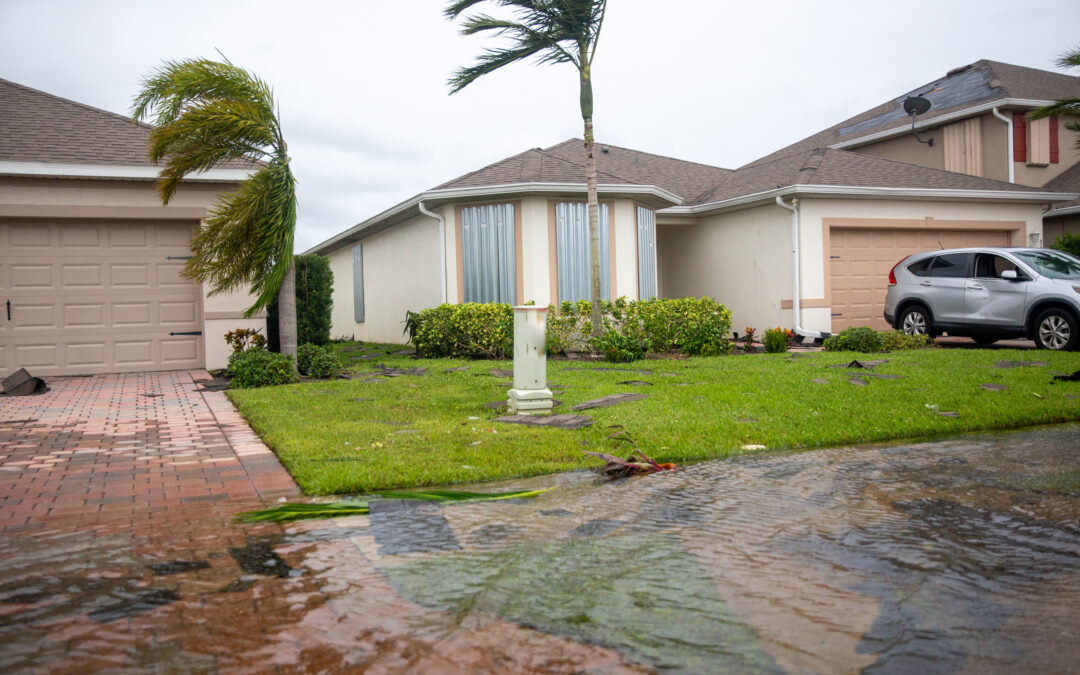Florida is known for its sunny skies and tropical climate, but with that comes the heavy rainfall and storms during the summer months. Increased rainfall can pose serious risks to your home, potentially leading to structural damage, mold growth, and flooding. Taking proactive steps to protect your property can save you from costly repairs down the line. Here’s what you need to know about the dangers of heavy rainfall and how to protect your home—and when it’s time to consider filing an insurance claim.
The Dangers of Summer Rainfall in Florida
While Florida’s summer rains are a natural part of the state’s climate, the intensity and frequency of the storms during this time can lead to several potential problems for homeowners:
- Flooding and Water Damage
Heavy rainfall can overwhelm drainage systems, resulting in localized flooding. Floodwaters can damage foundations, walls, and flooring, and seep into basements or crawl spaces, causing long-term structural issues and mold growth. - Roof Leaks
High winds and torrential rains can damage shingles or tiles, causing roof leaks that lead to water damage inside your home. These leaks can weaken the structure of your roof and lead to costly repairs if not addressed quickly. - Foundation Issues
Excessive water pooling around the foundation of your home can cause it to crack or shift. This is a serious problem that can compromise the structural integrity of your entire house. - Mold and Mildew Growth
Florida’s humid climate, coupled with water damage, creates an ideal environment for mold growth. Mold can spread quickly, leading to health issues and extensive cleanup and remediation costs.
Steps to Protect Your Home from Heavy Rainfall
To minimize the risks associated with increased rainfall, consider these protective measures:
- Inspect and Maintain Your Roof
Check your roof regularly for damaged shingles, tiles, or leaks. If necessary, hire a professional to perform a thorough inspection before the rainy season begins. Repairing minor roof issues early can prevent larger problems during heavy storms. - Clear Gutters and Drains
Make sure your gutters and downspouts are free of debris to allow rainwater to flow away from your home properly. Clogged gutters can cause water to overflow, leading to foundation damage or water intrusion into your walls. - Install a Sump Pump
If you have a basement or crawl space, installing a sump pump can help protect your home from flooding by automatically removing excess water that accumulates during heavy rains. - Check for Foundation Cracks
Inspect your home’s foundation for any cracks or signs of water intrusion. If you notice any issues, seal the cracks immediately or consult a professional to prevent water from seeping in and causing damage. - Seal Windows and Doors
Ensure that all windows and doors are properly sealed and weatherproofed to prevent water from entering your home during storms. Consider upgrading to impact-resistant windows and doors for additional protection. - Landscape for Drainage
Make sure your yard is graded properly so that rainwater flows away from your home’s foundation. Installing French drains or extending downspouts can help divert water away from your property.
When to File an Insurance Claim
In the event that your home does sustain significant water damage despite your preventive measures, you may be wondering when it’s appropriate to file an insurance claim. Here are some general guidelines to help you decide:
- Assess the Extent of Damage
Minor water damage, such as a small roof leak, might not warrant an insurance claim if the cost of repairs is lower than your deductible. However, if you’re facing significant structural damage, flooding, or mold issues, filing a claim is likely your best option. - Check Your Insurance Policy
Review your homeowner’s insurance policy to understand what types of water damage are covered. While most policies cover water damage caused by storms or wind-driven rain, flooding caused by rising water may require separate flood insurance. - Document the Damage
Before making any repairs, thoroughly document the damage with photos and videos. This will help support your claim and ensure you receive the appropriate compensation. - Consult a Public Adjuster
If you’re unsure about the extent of the damage or the claims process, consulting a public adjuster can be beneficial. They will evaluate your home, assist with filing the claim, and negotiate with your insurance company on your behalf to ensure you receive a fair settlement.
Florida’s summer rains are inevitable, but with the right precautions, you can protect your home from the damage they can cause. Regular maintenance, proper drainage, and quick action in the face of water damage are essential to keeping your home safe. If your home does sustain significant damage, carefully assess whether filing an insurance claim is the best course of action.
By taking the necessary steps now, you can avoid the stress and financial strain of unexpected water damage and keep your home protected during Florida’s rainy season.

